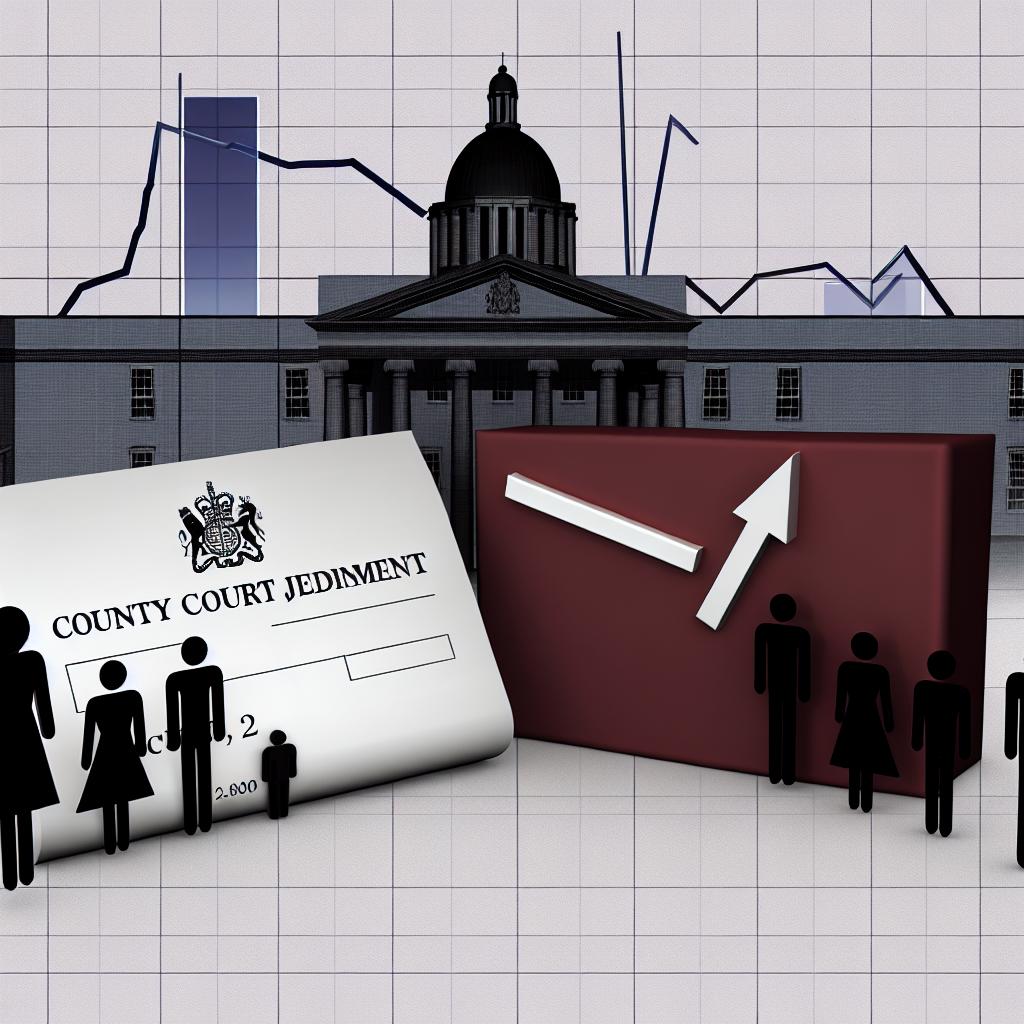
What is a County Court Judgment (CCJ), and how does it affect debt recovery?
Understanding County Court Judgments (CCJs)
A County Court Judgment (CCJ) is a legal directive issued by the courts in England, Wales, and Northern Ireland, requiring an individual or organization to repay a specified debt. This mechanism is primarily utilized by creditors when informal attempts to recover the owed funds have not been successful. CCJs serve as a firm step in the debt recovery process, offering a structured path for creditors to follow while reinforcing the importance of resolving financial obligations responsibly.
Issuance of a CCJ
The process of obtaining a CCJ begins with the creditor initiating an application to the county court. Upon receiving this application, the court sends a claim form to the debtor. This document outlines the creditor’s details and the amount owed. Debtors are then given a particular time frame within which they must respond. At this juncture, the debtor has several options: they can either acknowledge the debt outright, contest the amount, or offer a repayment proposal.
When a debtor fails to reply within the allotted time or does not settle the outstanding debt, the court may issue a default judgment. This default judgment mandates the debtor to pay the total outstanding sum, which includes the original amount, any accrued interest, and the additional costs incurred through court proceedings. A default judgment has significant consequences, making it imperative for debtors to address the claim form promptly.
Impact on Debt Recovery
The establishment of a CCJ plays a pivotal role in modifying the dynamics of debt recovery between the creditor and the debtor. It shifts the informal negotiations to a formalized process where compliance becomes a legal obligation.
Legal Recognition of Debt
For creditors, obtaining a CCJ provides a valuable legal backing, formally recognizing the debt in question. This legal status can enhance the creditor’s ability to initiate further enforcement actions if the debtor neglects the court’s order. Some enforcement options available include the deployment of bailiffs, applying for an attachment of earnings order, or securing a charging order against any property owned by the debtor. Each of these actions serves to increase the pressure on the debtor to satisfy the debt promptly.
Credit Record Implications
The issuance of a CCJ has considerable implications for the debtor’s financial standing, particularly concerning their credit record. Once a judgment is made, it is entered into the Register of Judgments, Orders, and Fines. This entry remains for six years unless the debtor manages to repay the full debt amount within one month of the judgment date. A CCJ on a credit record can be an obstacle to securing future credit, as it indicates to potential lenders that the individual might pose a higher risk due to past financial irresponsibility. Therefore, resolving the debt swiftly can minimize long-term financial repercussions.
Opportunity for Payment Arrangements
Debtors have the opportunity to explore payment arrangements after a judgment is made. Engaging in direct discussions with creditors to negotiate a manageable payment plan can be beneficial. By proposing adjustments to the payment terms, debtors can alleviate some financial stress and potentially foster a more amicable relationship with the creditor. Successfully negotiating such an arrangement can lead to better financial management and lessen the negative impact of a CCJ on the debtor’s record.
Preventing a CCJ
Preventing the issuance of a CCJ is paramount for debtors aiming to maintain their financial reputation. Proactive engagement with creditors, early on, can significantly diminish the likelihood of facing court action. Exploring various strategies to manage debts before they escalate can ultimately save time and hassle.
Importance of Addressing Debt
Facing financial difficulties head-on is crucial for individuals at risk of receiving a CCJ. Ignoring debts not only fuels further legal complications but can also worsen one’s financial predicament. To prevent such adverse outcomes, individuals should consider available options like debt consolidation, which merges multiple debts into one, creating a simplified payment structure. Alternatively, forming informal repayment plans with creditors or seeking advice from a debt advisor can provide a clearer path to managing financial challenges effectively and sustainably.
Additional Resources
Those grappling with debt or seeking a deeper understanding of CCJs can access a wealth of support from financial advisory services and legal aid organizations. These entities offer comprehensive guidance tailored to individual circumstances, providing clarity and direction in complex financial and legal landscapes. As dealing with such matters can have profound legal and financial implications, it is advisable to pursue professional counsel to navigate these challenges adeptly.
The insights surrounding County Court Judgments underscore the importance of resolving debts through the appropriate channels. For creditors, a transparent understanding of the benefits and procedures associated with CCJs amplifies their debt recovery strategies. Meanwhile, debtors can better navigate these challenges by engaging proactively and utilizing available resources, thereby promoting a healthier financial environment. Proactive management and open communication are key in forging a path toward financial stability and resolution.
- Posted by
 admin
admin - Posted in Uncategorized
 Feb, 04, 2025
Feb, 04, 2025 Comments Off on What is a County Court Judgment (CCJ), and how does it affect debt recovery?
Comments Off on What is a County Court Judgment (CCJ), and how does it affect debt recovery?
